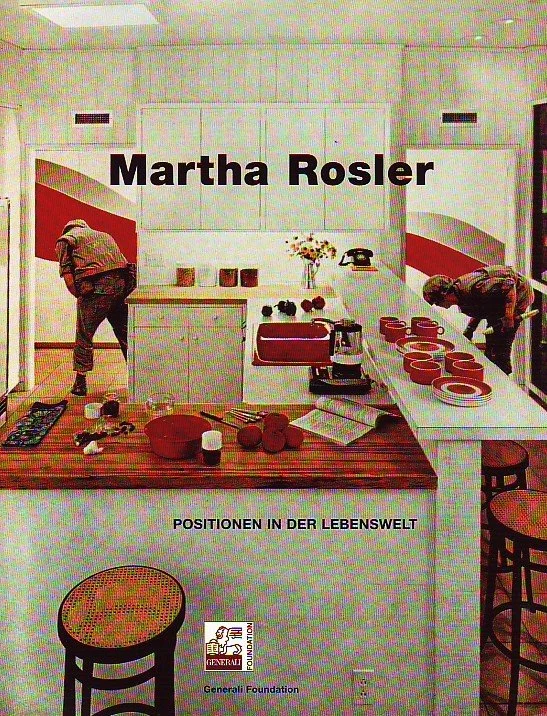Positionen in der Lebenswelt (German edition, 1999)
Edited by Sabine Breitwieser
Foreword by Dietrich Karner & introduction by Sabine Breitwieser
With an interview by Benjamin Buchloh and contributions by Alexander Alberro, Sabine Breitwieser, Silvia Eiblmayr, Annette Michelson, Martha Rosler and Catherine de Zegher
Wien: Generali Foundation
ISBN: 3-901107-23-1
400 pages
Purchase
The exhibition catalog from the Generali Foundation show in 1999 includes a catalogue raisonné as well as a foreword by Dietrich Karner, an introduction by Sabine Breitwieser, an interview between Benjamin H.D. Buchloh and Martha Rosler, and texts by Alexander Alberro, Sabine Breitwieser, Silvia Eiblmayr, Annette Michelson, Martha Rosler and Catherine de Zegher.
In her performances, videos, text works, photographs and installations, Rosler confronts us with political issues that analyze everyday domestic and urban life as well as the role of the media from a feminist perspective in a critical but consistently humorous way.
In the series Beauty Knows No Pain or Body Beautiful (1965-74), she used collage techniques to create breaks in the presentation of women. She used this technique continuously, also in her well-known series of photomontages, Bringing the War Home: House Beautiful and Bringing the War Home: In Vietnam (1967-72). Here, as in the installation B-52 in Baby’s Tears (1974), Rosler questioned the role of the mass media in the war. In the mid-1970s, she began to show food as a central factor in social and economic policy in so-called “Wordworks" (text works). Rosler treated food and the construction of female roles e.g. also in the performance video Semiotics of the Kitchen (1975). Another essential aspect of Martha Rosler's work is the critical examination of the social implications of urban structures. Her photo-text installation The Bowery in two inadequate descriptive systems (1974-75) is considered one of the most important reflections on the role and representative character of documentary photography. (Monika Vykoukal)

